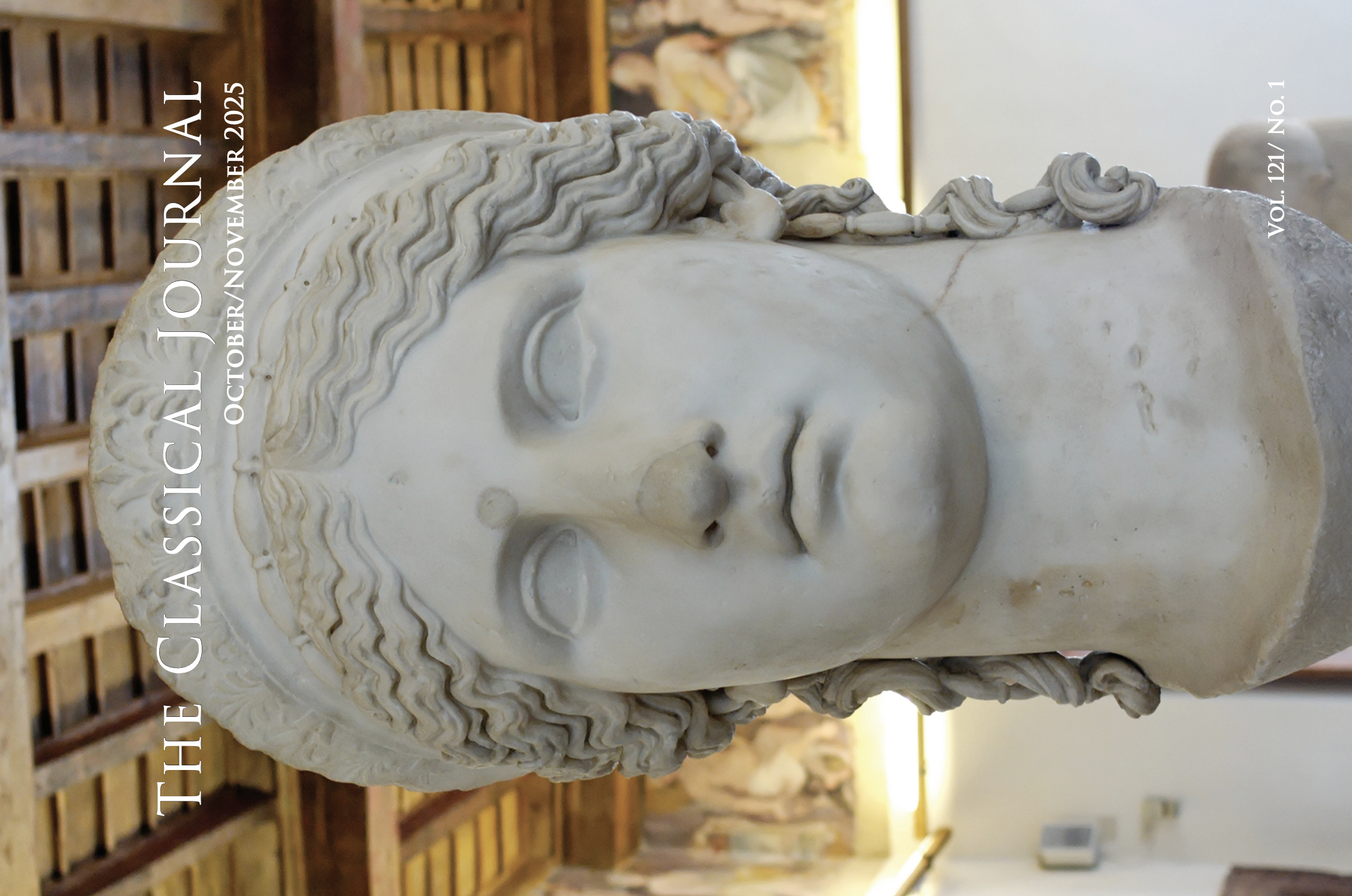The following articles are contained in CJ
118.4
Abstracts of Articles
Traces of Survival Cannibalism in Homer's Odyssey
The eating of the corpses of fellow crew members has been a survival strategy for shipwrecked sailors for centuries. In this paper I ask whether we can see any traces of this practice in the Odyssey. I find them in the structure of the episode of the cattle of the sun on Thrinacia, in the cannibalistic undertones and drawing of lots on Circe’s island, Aeaea, and in the trope of human sacrifice to obtain fair winds, suggested by Menelaus’s experiences on Pharos and the death of Elpenor. These traces reflect the anxieties of an early seafaring culture, illuminate the Odyssey’s most famous anthropophage, the Cyclops, and suggest an allusive relationship between the Odyssey text and ancestral narratives of survival cannibalism.
Vergil's Epicurean Fortunatus
In this paper I reevaluate the relationship between the figures of the felix and the fortunatus at the end of Georgics Book 2. Rather than representing an opposition between Epicurean natural philosophy and traditional religion, the figures are complementary, embodying the physical and ethical teachings of Epicureanism respectively. I first discuss the implications of Vergil’s praise of the felix for his views on traditional religion and analyze allusions to Lucretius in his description of the fortunatus. Then I show that Vergil’s treatment of the divine both has parallels to Epicurean cult practice and follows Lucretius’ poetic model of divine symbolism, the divinities named at 2.494 being symbols for Epicurean ethical ideals. As a whole, my argument indicates a positive attitude towards Epicureanism in the Georgics.
Apollonius in India: The Vita Apollonii and the Indographic Tradition
In this article I examine Philostratus’ engagement with the Indographic tradition in books 2 and 3 of the Vita Apollonii. A number of interconnected arguments are presented here. The main argument is that Philostratus carefully adapted details from the Indographic and paradoxographical traditions, allowing him to make witty allusions, both explicit and oblique, to them. This also allowed him to parody the critical doxographic habit of later commentators. Similarly, he sought to invert expectations when it came to the presentation of Alexander and the mythic heroes Dionysus and Heracles, as well as India more broadly. In doing so, Philostratus was able to present a utopian land of the Sophoi (within India) grounded in time and space that could ironically act as source of true Hellenism which Apollonius spread to the West (rather than Alexander spreading it to the East).


